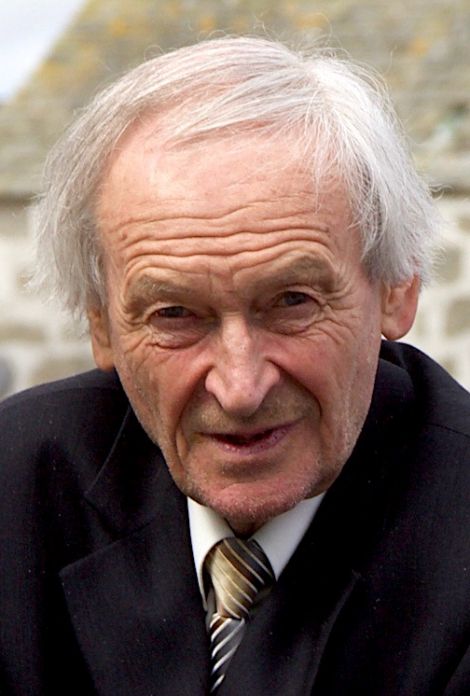News / NHS faces ‘draconian’ cuts, warns Duncan
“DRACONIAN” cuts, staff retention and the cost of travel were just some of the issues discussed at NHS Shetland’s annual review Monday.
The well-attended meeting in Lerwick was chaired by Scottish minister for public health Aileen Campbell, who faced a number of robust questions from councillors, the public and current and former NHS staff.
Shetland’s integration joint board (IJB) vice chairman Allison Duncan used the review to state that the Scottish Government should do more to address NHS Shetland’s cash shortfall.
The IJB, which brings together Shetland Islands Council and NHS Shetland to oversee health and social care, heard in July that the health board needs to find an additional £10.4m in new savings over the next five years in addition to £2.1m brought forward from 2016/17.
“When is your government is going to realise that this cannot continue, and increase funding to all IJBs?” Duncan asked.
“Please don’t use the excuse that this is Westminster’s problem,” he said.
Campbell said that, while the budget from the UK Government has gone down, the Scottish Government has “ensured that health has been protected”.
By the end of the current parliament, she said, there will be an increase in the health budget of £2 billion.
But Duncan wasn’t impressed, saying that the only solution to help the local health board is to provide more money. “Cuts will be draconian over the next few years,” he warned.
The meeting was opened with a presentation by NHS Shetland chairman Ian Kinniburgh, who reflected on the progress made since last year’s review.
He said there was “real success” in achieving waiting time targets for child and adolescent mental health therapy – but there was still work to be done for adults.
Kinniburgh said he was “delighted” the board achieved financial balance last year, but a reliance on non-recurring initiatives will prove an “increasing challenge” going forward.
Become a member of Shetland News
He continued by saying that the board will work hard to redesign services so they are “fit for purpose”.
The chairman admitted that the recent U-turn on proposals to send patients south for treatment on the overnight ferry to save money had been a “wonderful lesson” in learning how to communicate better with the public.
Opening the questions, Lerwick North councillor John Fraser said a freedom of information request showed that NHS Shetland had spent nearly £150,000 in 2016 for staff to travel south on flights and ferries.
He asked Campbell if this was necessary and if she would consider this during future budget allocations.
Chief executive Ralph Roberts said it was important for staff to continue to access training and that there is a balance between travelling and staying put.
“We’re very clear that staff should travel when necessary,” he said. “We encourage staff to use video conferencing when possible.”
Campbell said staff looking for opportunities to “enhance knowledge” leads to a better service for the patient.
Brian Wishart, meanwhile, called on a protocol to be put in place for island patients when they are discharged from mental health hospital Cornhill in Aberdeen.
“There should be no difference between physical health and mental health,” he said, with Campbell referring to the Scottish Government’s appointment of a dedicated mental health minister last year as a long-term commitment.
Susan Cooper said she had worked for the NHS for 45 years – 34 of them in Shetland – but she would have still offered to work some hours if there was less demand placed on her in terms of travelling and being on call.
She said a “small group of people could work in their own areas without having to drive much”, with Roberts admitting that the health board could do better in managing the transition into retirement and beyond.
Staff retention was also an issue for a woman from the south mainland of Shetland who said she had been waiting 24 weeks for an appointment after rheumatologist Jim Unsworth retired.
She criticised the health board’s planning and said it knew Unsworth had been due to retire.
Director of nursing and acute services Kathleen Carolan apologised and said that rheumatism was a small field, with the health board “very fortunate” to have had Unsworth working for them for 17 years.
She confirmed that he had agreed to return to working with NHS Grampian, with details due to be finalised in the coming weeks.
Consultant clinician David Fryer, who has been working in Shetland for four years, said staff retention was a problem – while criticising NHS restructuring and “bureaucracy” on a national level.
He used the term “sausage factory” in relation to careers in health today and said retaining junior doctors was a major issue.
The last word went to councillor and former Lerwick Health Centre manager Fraser, who called for a review of performance at the centre when its service “falls short of reasonable expectation”.
Kinniburgh said he would not support a review but said it was a “work in progress”, adding that there had already been public input into the health centre’s service.
Become a member of Shetland News
Shetland News is asking its many readers to consider paying for membership to get additional features and services: -
- Remove non-local ads;
- Bookmark posts to read later;
- Exclusive curated weekly newsletter;
- Hide membership messages;
- Comments open for discussion.
If you appreciate what we do and feel strongly about impartial local journalism, then please become a member of Shetland News by either making a single payment, or setting up a monthly, quarterly or yearly subscription.





























































